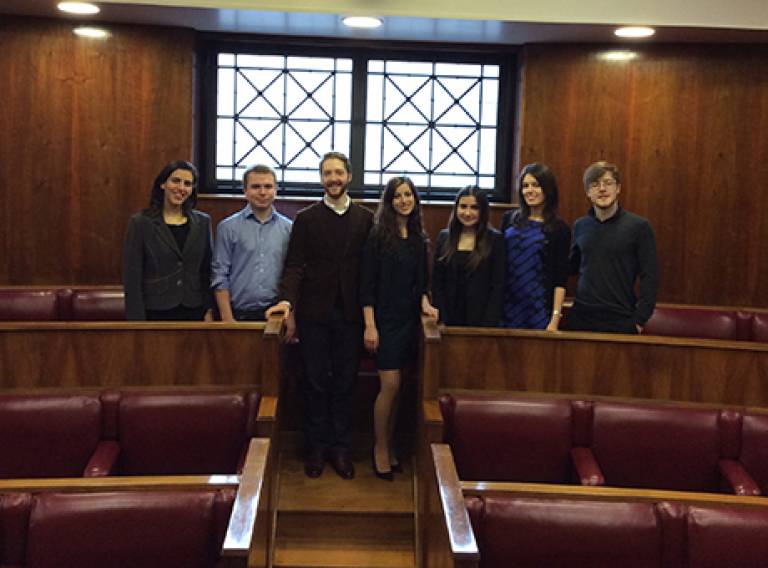Success for UCL Laws at INADR International Law School Mediation Tournament
6 March 2015
Competing against students from across the world in February, two teams from UCL Laws reached the semi-finals of the INADR 2015 International Law School Mediation Tournament

The six competitors from the Faculty were awarded the prize for the Outstanding New Mediation Program for their overall performance, while undergraduate student Theodora Dragan was placed fifth in the category for best Individual Mediator.
The INADR Law School Mediation Tournaments were established by the International Academy for Dispute Resolution in 2002 to create a greater awareness of mediation and its potential to offer a less costly and destructive method to resolve disputes than possible through an adversarial system.
During the tournament, which was hosted jointly by UCL and BPP Law School, students received training from experienced international mediators and learnt the skills needed both to act as a mediator and represent a client in mediation. The INADR Law School Mediation Tournaments have been held in Australia, Ukraine, India the UAE and across the UK and US.
The UCL Laws teams – which included LLB students Theodora Dragan, Marilia Paraschou and Andreea Toma in Team A, and Luke Blackett, Kristian Tveit Diskerud and Rhys Morgan in Team B – were the first students from UCL to take part in the tournament. They were chosen to represent the Faculty by the UCL Law Society’s Vocational Officer, Natasha Benkhadra, following an interview process to whittle down over 40 applicants to just six competitors.
Reflecting on their preparations for the competition, Theodora said: “Natasha did an amazing job making this competition happen. She arranged for us to meet with Ali Nouarei, a professional mediator who had previously won the competition, who explained the process and gave us some useful tips.”
The students then met independently in their teams to rehearse their opening statements and various roles on different occasions. The competition was structured so that each member of the team could undertake the role of a mediator, client and advocate. The judges assessed the mediator role separately, while the client and advocate team members were given a joint score.
Marilia Paraschou, who with Rhys Morgan represented UCL as mediator in the semi-final round, said: “The competition gave us a better understanding of how flexible the mediation process can be and also how it may be used in different situations. We dealt with a variety of legal issues, ranging from family to employment disputes.”
Theodora explains: “The competition really promotes collaboration and this can be seen from the fact that one of the evaluation criteria was how well you cooperated with your adversary in order to solve the conflict between the two of you.”
“We learned how to address issues peacefully, how to diffuse conflict and how to appease anger, as well as how to negotiate with teams from different cultures. But most importantly, we learned how to be flexible: we had to adapt to each different role (mediator, client or advocate) within minutes.”
 Close
Close

